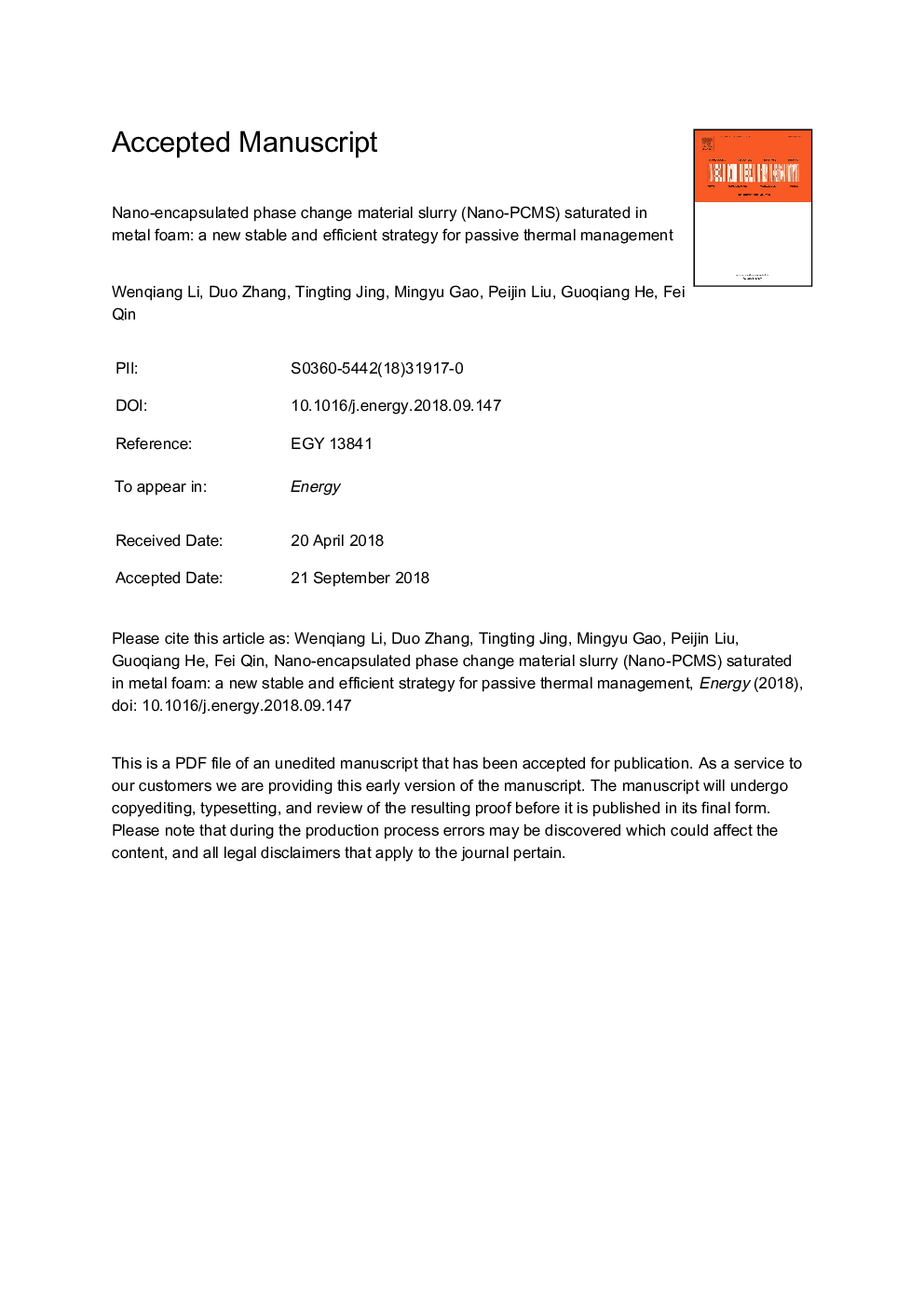| Article ID | Journal | Published Year | Pages | File Type |
|---|---|---|---|---|
| 11026437 | Energy | 2018 | 29 Pages |
Abstract
Nano-encapsulated phase change material slurry (nano-PCMS) has the merits of high latent heat and high surface area, and overcomes the defects of supercooling and volume expansion that exist in most organic/inorganic PCMs. Subjected to the low thermal conductivity, the thermal management systems using nano-PCMS are highly dependent on slurry's convection coefficient, which cannot be guaranteed in the condition where the natural convection is constrained. Here, this article proposed a novel thermally stable and efficient hybrid PCM that infiltrating nano-PCMS into metal foam for passive thermal management. The experimental results indicated that the addition of metal foam could reduce the heated surface temperature by maximum 38% in regardless of heated angle, while this contribution was 24% achieved by natural convection of pristine nano-PCMS. The flow convection of nano-PCMS was completely suppressed in the foam cells due to the high viscosity of slurry and flow resistance of foam matrix. Higher porosity composite obtained lower heat transfer efficiency and more pronounced thermal non-equilibrium effect attributed to its lower effective thermal conductivity and less interfacial area. This newly-proposed foam/nano-PCMS composite not only provides high heat transfer efficiency, but reduces the dependency on the convection coefficient of nano-PCMS.
Related Topics
Physical Sciences and Engineering
Energy
Energy (General)
Authors
Wenqiang Li, Duo Zhang, Tingting Jing, Mingyu Gao, Peijin Liu, Guoqiang He, Fei Qin,
